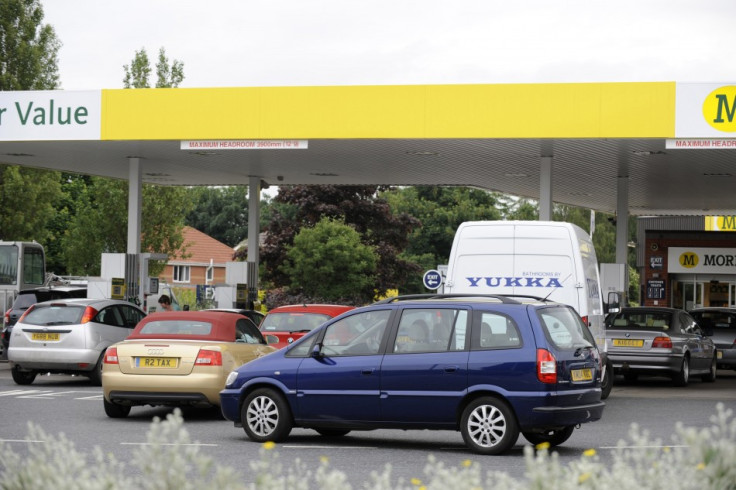Fuel Tanker Drivers' Strike: Unite Union Reject Oil Companies' Deal

Petrol tanker drivers are still poised to strike as their union rejected an offer from oil companies in dispute talks aimed at averting industrial action - once again casting a threatening shadow over the nation's fuel supplies.
Unite union, which represents the tanker drivers, have rejected an oil company offer on improved pay, working conditions, and health and safety training saying it does not go far enough. They had been locked in talks for six days.
However Diana Holland, Unite assistant general secretary, said they want to continue talks and avoid a strike if possible.
Acas, the independent arbitrators in industrial disputes, had facilitated the talks between Unite and the oil companies and were positive about a resolution being on the horizon, having reached an agreement on an initial set of proposals.
"Acas is pleased at this development and hope that the matter will soon be settled," Peter Harwood, Acas chief conciliator, said.
Details of the agreement were kept confidential.
Fears over the threat to Britain's fuel supply after the drivers voted for strike action led to panic buying across the country, with some petrol stations being emptied of fuel.
The government were accused of being irresponsible by motoring groups after both Francis Maude, the cabinet office minister, and David Cameron, the prime minister, suggested people should fill up their cars if they had a chance.
Maude even suggested people keep a Jerry can of fuel in their garages as a precaution, something that insurers warned would invalidate home insurance in the event of a fire.
Dorset Police ordered all petrol stations in the county to temporarily close, after long queues of vehicles tailing back into roads were becoming hazardous for other traffic.
Tanker drivers must give seven days' notice of their intention to strike before their ballot expires on 23 April.
Petrol tanker drivers in the Unite union voted for strike action in a row over pensions and working conditions, as well as health and safety concerns.
"This is not about pay - this is about ensuring that high safety and training standards are maintained so that our communities are safe," Diana Holland, Unite assistant general secretary, said.
© Copyright IBTimes 2025. All rights reserved.





















